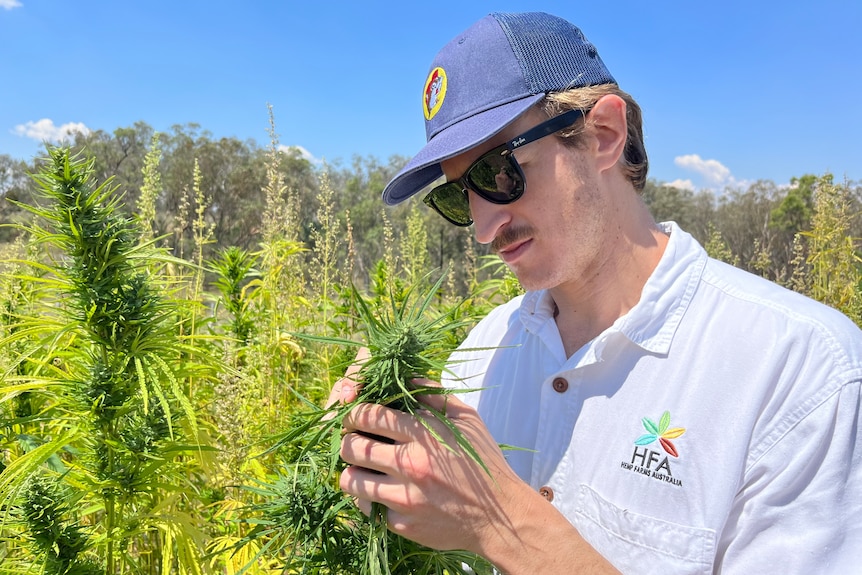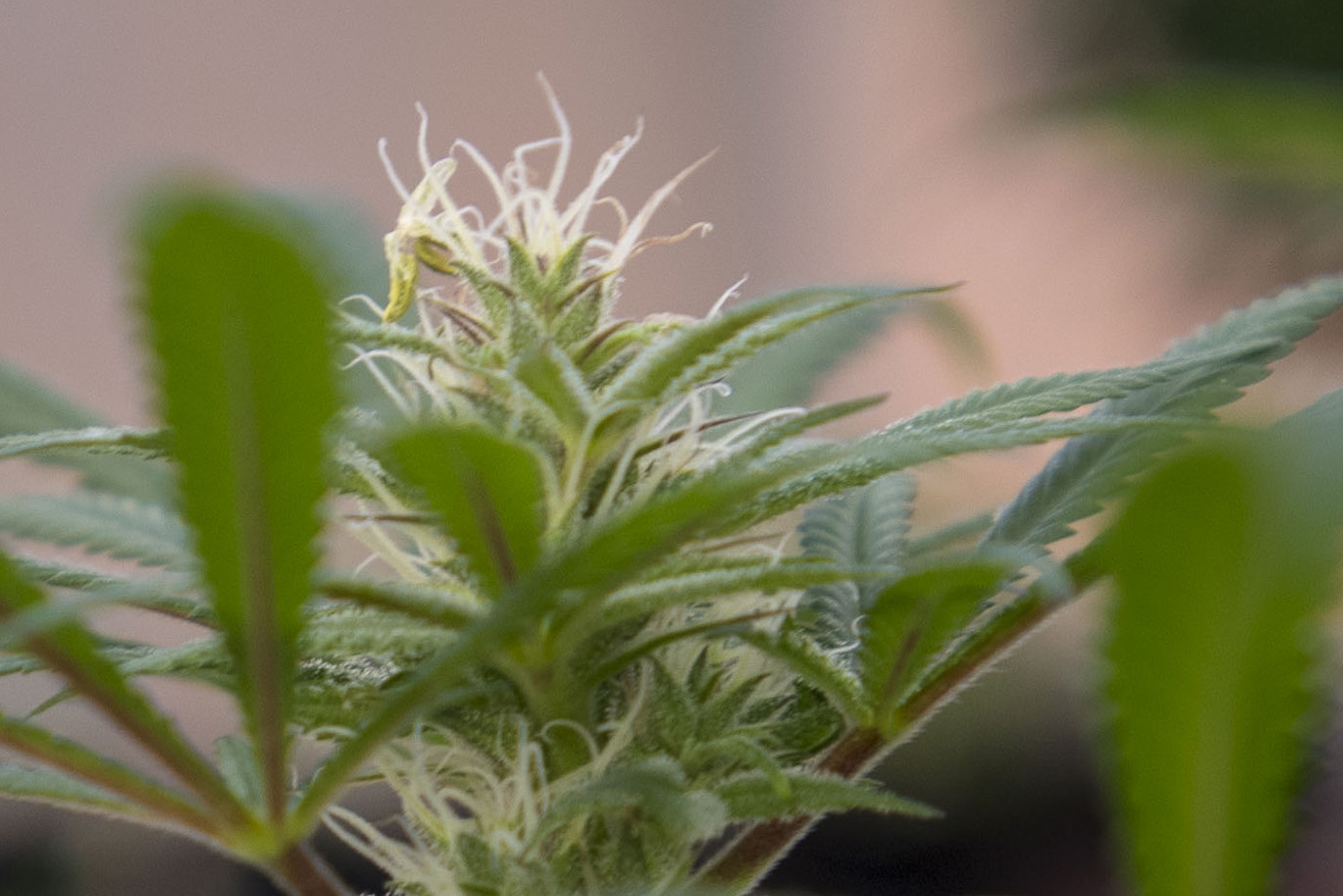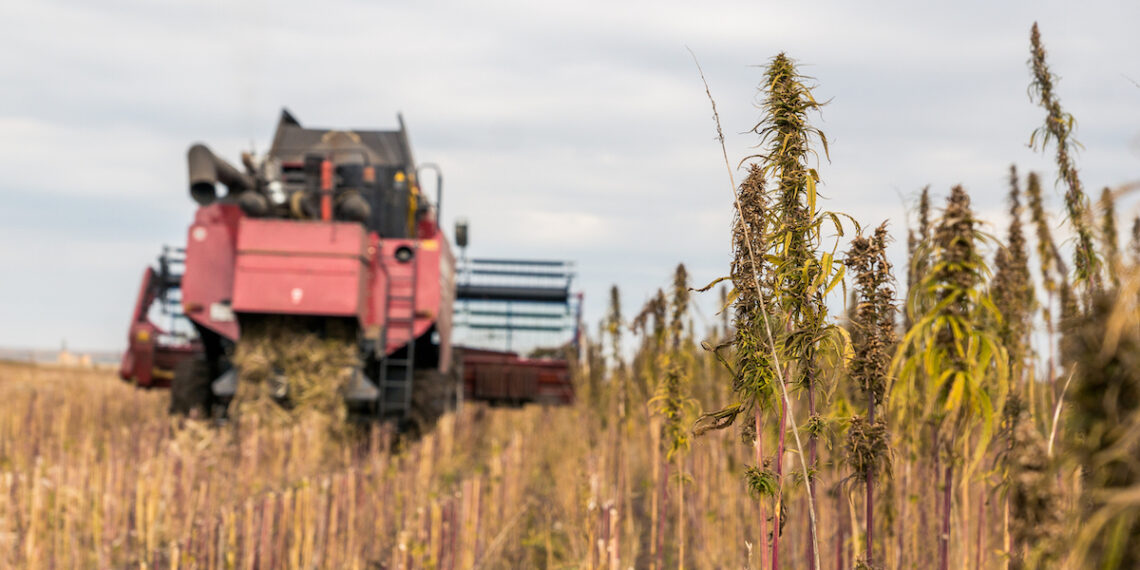By Joe Roberts
Hemp fibre produces some of the strongest and most durable materials in the world and absorbs more carbon than pine trees. Hemp Farms Australia believes interest in the plant needs reigniting.
Cannabis Wealth sat down with Lauchlan Grout, co-founder of the Australian industrial hemp farming agribusiness, Hemp Farms Australia. The company was launched in 2013 by Grout and his childhood friend Harrison Lee to cultivate, process and sell the primary components of industrial hemp.
A dedicated seed supplier, Hemp Farms Australia was one of the first players in Australia’s hemp industry. The company specialises in variations of the plant that perform well in sub-tropical environments, a rare thing for a plant that originated in the icy tundras of Siberia.
Now a leader in hemp seed genetics, the company supplies seeds for growing grain for food and growing fibre for animal bedding, hempcrete and bioplastics. Grout talks about his passion for hemp and its potential to tackle the growing threat of climate change.
How did you get into the hemp sector?
After school, Harrison and I both went to work for his family in their abattoir here in Brisbane. They supply a couple of big grocery stores and supermarket chains with beef. We started on the kill floor and then went to the boning room. That was about five or six years of work experience in the abattoir as well as out on their farm. We learned there are so many facets to a supply chain.
At the time, hemp was being brought up a lot as this wonder crop; there were 70,000 uses for it apparently, but that just didn’t make sense because we hadn’t seen it anywhere. If there were so many uses for hemp, why wasn’t it being used?
So we dug deeper into that side of it and realised that all the different prohibition laws and the fact that hemp was so closely related to cannabis meant both of them, in Australia and many parts of the world, were illegal to grow even as for food or fibre.
But not many people realise that back in the day, the British and Russian naval fleets were all kitted out with hemp sales and hemp ropes because it was the most durable fibre in the world. All that knowledge and all that belief and all that industry were lost so we saw it as an opportunity to bring back something that could actually have a great impact on people and the environment.

Why is sustainability so important to you as a company?
The Earth is not heading in a nice direction in terms of the environment and climate. The climate extremes that we’ve seen in the last ten years here are comparable to what farmers have spoken about over the past 60 years. It seems like the events of those 60 years have repeated themselves in the past ten but double the scale and in a harsher fashion.
Farming is not easy. You have to budget for one in three crops to fail; it’s sometimes a business that can make you extremely depressed and that’s why so many farmers kill themselves; it’s terrible. They just have no water and if you have no water, you can’t do anything.
If I can do something that would not only help potentially reverse climate change or at least stop temperatures fluctuating so heavily by reducing the amount of carbon in our atmosphere, I want to do it.
Hemp is the highest carbon sequestering plant and one of the most sustainable protein-producing plants in the world. Hemp can reduce the amount of carbon in our atmosphere on a scale 40 times larger than a pine forest. Not only does it suck out the carbon, but it also locks it in the plant material so you can then build a car with that and produce fuel. Henry Ford built a car back in the 1940s out of hemp plastic that ran on hemp biofuel. All this stuff has been around but it just needs to be reignited.
What are some of the biggest challenges you have faced on your journey running Hemp Farms Australia?
The first five years were challenging but also hopeful. Every mistake that we made hadn’t been made before because no one else had stepped that far yet. In other established industries and markets, you can read books or you can speak to people to find out what not to do, whereas in this sector there was none of that.
For example, nobody knew that you have to store industrial hemp at a certain temperature and in a certain humidity once you’ve harvested it, otherwise it will go mouldy within two or three days.
With our first crop, we harvested 40 tonnes of seed, we put it in an aerated silo which had heaps of fans running through it, but it was partially in the sun in a big metal container. We came back to check on it two days later and you could smell the mould from where we parked hundreds of metres away.
There were 40 tonnes of seed there worth every bit of $10 a kilo. That’s $400,000 worth of seed.
How have things changed since the early days of setting up Hemp Farms Australia and what have you learned?
We’ve got great advisors now and our key cornerstone investor is a very wise and smart agricultural businessman, so the last three years have been a lot different to the previous five.
I’ve learned that if you have something of value, then it’s worth risking a lot more than you think you would ever risk. I was questioning myself in the early days. I was doing it because I believed it will have a good impact on the world and the environment and the people living in it, but is it going to make me any money? Am I going to be able to build a family off of this? Those things were running in my head so much because things were ticking but they weren’t ticking the way we thought they would.
But I think the biggest thing I learned is If you believe something and you know in your gut that it will happen or it should happen then do not stop; the maths doesn’t need to line up. If money is the only thing that’s stopping you from keeping on the grind, then you shouldn’t be grinding it.
You run the business with a close school friend. How do you find running a business with one of your best mates?
Harrison and I have been very close friends – pretty much best friends – since year seven at school. We weren’t very fond of each other to begin with. He was very much into gaming. I was very much into sports. But he taught me the world of gaming and I taught him the world of sport and we became very close friends after that.
Never ever get into business with your best friend is what everyone told us. I will admit, we’ve been through some pretty bad times, to the point where we were not talking to each other, but you get over it, you harden up and you laugh about it.
We suddenly just said to each other ‘business is business and friendship is friendship’. We both have to pull our weight and we can’t be bickering at each other just because we know each other in and out.
Why are you proud to be part of the hemp and cannabis industry?
Not only can you heal people medicinally, but you can also house people through the fibres, you can clothe people through the fibres. There’s so much that hemp can do for people. Hemp revolutionised things back in the day, it’s now about reigniting it to a level where we can make a change.

